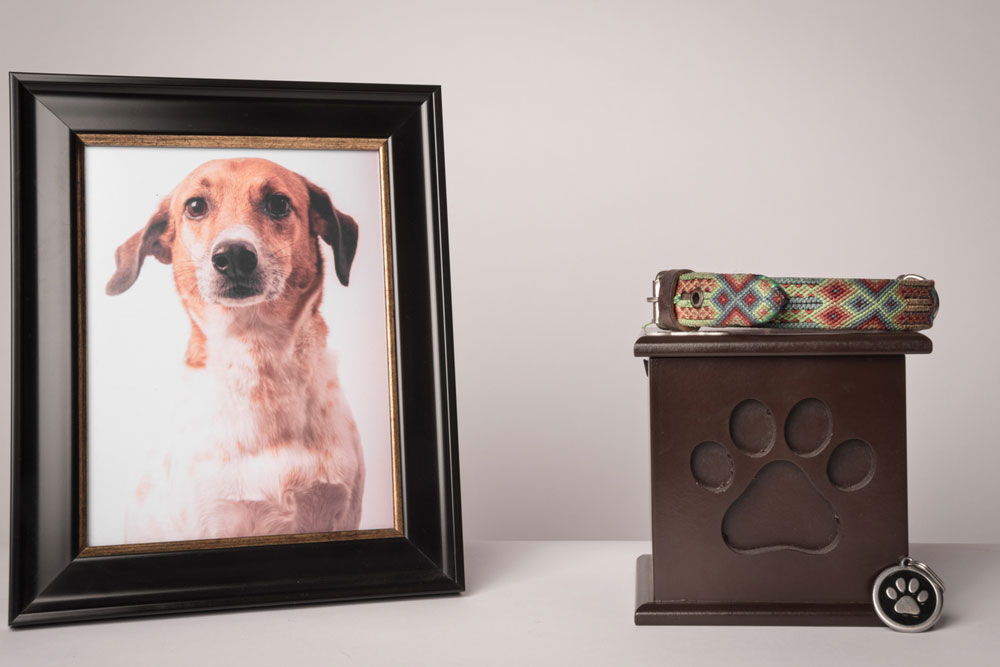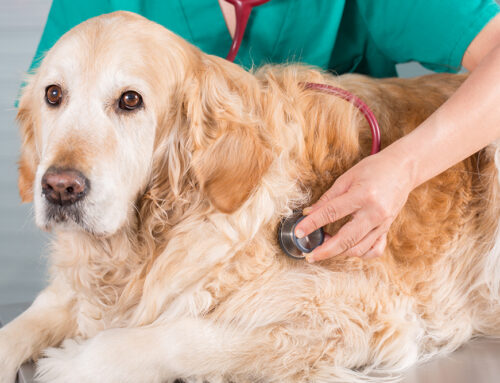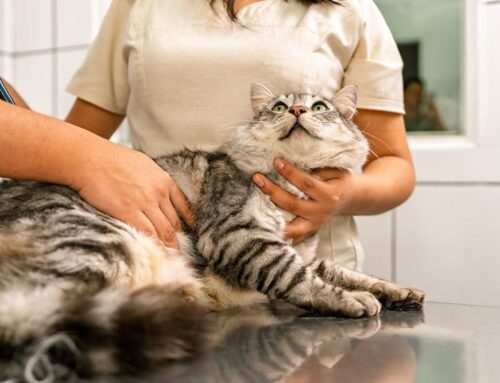Helping Pets and Families Through the Final Chapter of Life
Few moments compare to the heartache of realizing that your pet’s time may be coming to an end. Maybe your senior dog no longer greets you at the door because standing has become too difficult, or perhaps your cat- once eager for meals- has begun turning away from food entirely. These small but significant changes leave families wondering if their companion is still comfortable, and if they are making the right choices.
For some families, the end does not come gradually but suddenly. A pet may experience a traumatic accident, or an unexpected medical crisis that leaves little time to prepare. These situations are just as devastating and often bring even more uncertainty about what to do next.
At Southern Arizona Veterinary Specialty & Emergency Center, we understand the weight of these decisions. As a locally owned and AAHA-accredited hospital, we are dedicated to supporting pets and families through every stage of life, including the final chapter. With 24/7 emergency availability at our East Side location and access to board-certified specialists in internal medicine and oncology, we provide both advanced medical care and compassionate guidance when it matters most.
Recognizing Declining Quality of Life
Every pet’s journey is unique, and recognizing when comfort has started to fade can be overwhelming. Signs that often indicate declining quality of life for seniors and those with chronic illnesses can be subtle, and include:
- Labored breathing or chronic coughing
- Severe or unmanageable pain despite medications
- Refusal to eat or significant weight loss
- Incontinence or inability to rise or walk
- Confusion, pacing, or other cognitive changes
- Loss of interest in family interaction or play
- More good days turning into more difficult days over several weeks
Structured tools such as the Quality of Life Scale or the AAHA Quality of Life Assessment can provide objective ways to track your pet’s comfort and help guide conversations with your veterinary team.
When the End Is Unexpected: Emergency End-of-Life Care
Not every goodbye follows a slow decline. As an emergency and specialty center, we often meet families on the hardest day, when a sudden crisis changes everything. Some of the most common urgent situations that may bring a pet unexpectedly to the end of life include:
- Being struck by a car or other traumatic accidents
- Snake bites or encounters with wildlife
- Gastric dilatation-volvulus (GDV or “bloat”) in large breed dogs
- Internal bleeding from ruptured hemangiosarcoma or other tumors
- Complications of advanced cancer, such as broken bones from osteosarcoma
- Severe heat stroke during Arizona’s extreme summers
- Acute poisoning or toxic ingestion
When you arrive at our East Side hospital, your pet is triaged immediately. We stabilize first, then talk through what the crisis means and what options exist. For some pets, short-term intensive care can restore comfort long enough to return home for hospice. For others, testing may reveal that recovery is unlikely or that continued treatment would not align with your goals. In those moments, we will help you choose between supportive care or peaceful euthanasia.
Hospice and Palliative Care: Keeping Pets Comfortable
When cure is no longer possible, the focus shifts to comfort. Hospice and palliative care are designed to ease pain, maintain dignity, and allow families to spend meaningful time together. This may include:
- Adjusted pain relief or anti-inflammatory medications
- Appetite support and hydration therapy
- Gentle hygiene and skin care to prevent discomfort
- Soft bedding, mobility aids, and safe home adjustments
- Ongoing monitoring with our internal medicine specialists to manage complex diseases such as kidney failure, diabetes, or heart conditions
- Guidance from our oncology team to balance cancer treatments with quality-of-life goals
- Evaluation by our dentistry service to address painful oral conditions that often worsen near the end of life
Many pets also benefit from supportive tools like assistive devices for arthritis or simple arthritis-friendly home adjustments that reduce stress and risk of injury. Resources like the AAHA Mobility Matters guide provide additional strategies for helping pets remain safe and comfortable.
Understanding Humane Euthanasia
Families often ask, “Will I know when it’s time?” While there is rarely one exact moment, the decision often becomes clear when a pet’s suffering outweighs their ability to enjoy life. Humane euthanasia can then be the kindest gift of love.
At SAVS, we ensure the process is peaceful and respectful:
- Private consultation – We review your wishes and answer all questions.
- Sedation – Your pet is gently sedated to relax into a calm, comfortable state.
- Final injection – A painless medication allows your pet to pass peacefully.
- Time and aftercare – Families are given as much time as needed, with aftercare and memorial options explained with sensitivity.
Helping Families Through Grief
Grief is a natural response to the loss of a pet, and no two journeys are alike. Adults may experience sadness, guilt, or even relief, while children often need extra support. Using honest, age-appropriate language helps them understand without confusion. Encourage them to express their feelings through drawing, writing, or memorial rituals.
Support is available through Cornell’s pet loss resources and the Association for Pet Loss and Bereavement. Families may also find comfort in memorial traditions such as planting a tree, creating a scrapbook, or donating to a shelter in their pet’s name.
Why Families Trust SAVS
Since 1994, Southern Arizona Veterinary Specialty & Emergency Center has been a leader in advanced veterinary care for Tucson pets. Our board-certified specialists and skilled, compassionate team provide comprehensive options for pets facing serious illness. We are proud to be AAHA accredited, ensuring that our standards meet the highest levels of veterinary excellence.
Here, we treat pets like family, offering individualized care and around-the-clock support. Whether your pet requires intensive emergency stabilization, specialty guidance for a chronic illness, or compassionate end-of-life planning, our mission is to stand beside you with expertise and empathy.

Common Urgent Situations for Pets Nearing the End of Life
Families should be aware of urgent conditions that indicate emergency care is needed, or that it’s time to consider euthanasia for terminally ill or senior pets:
- Severe respiratory distress or collapse
- Seizures that will not stop
- Abdominal swelling
- Uncontrolled bleeding or pale gums
- Inability to stand, sudden paralysis, or acute weakness
- Repeated vomiting, inability to keep food or water down, or distress from organ failure
Some pets may stabilize with intensive treatment, while others may be at a point where euthanasia is the most compassionate option. Our team will help you understand what is happening and make decisions aligned with your values.
You Are Not Alone
Saying goodbye to a beloved pet is never easy, but you do not have to face it alone. The team at Southern Arizona Veterinary Specialty & Emergency Center is here to guide you through every step of this journey with compassion, clarity, and respect.
Whether you need support from our specialty services or are facing an urgent decision, we are here to help ensure your pet’s final days are filled with peace, comfort, and love.
Our Locations
Central Location – Specialty Services by Appointment
185 E. Ft. Lowell Rd.
Contact Us
East Side Location – 24/7 Emergency & Internal Medicine
7474 E. Broadway Blvd.
Contact Us
If you have questions about end-of-life care or need immediate support, please contact us. We are always here to help.








Leave A Comment